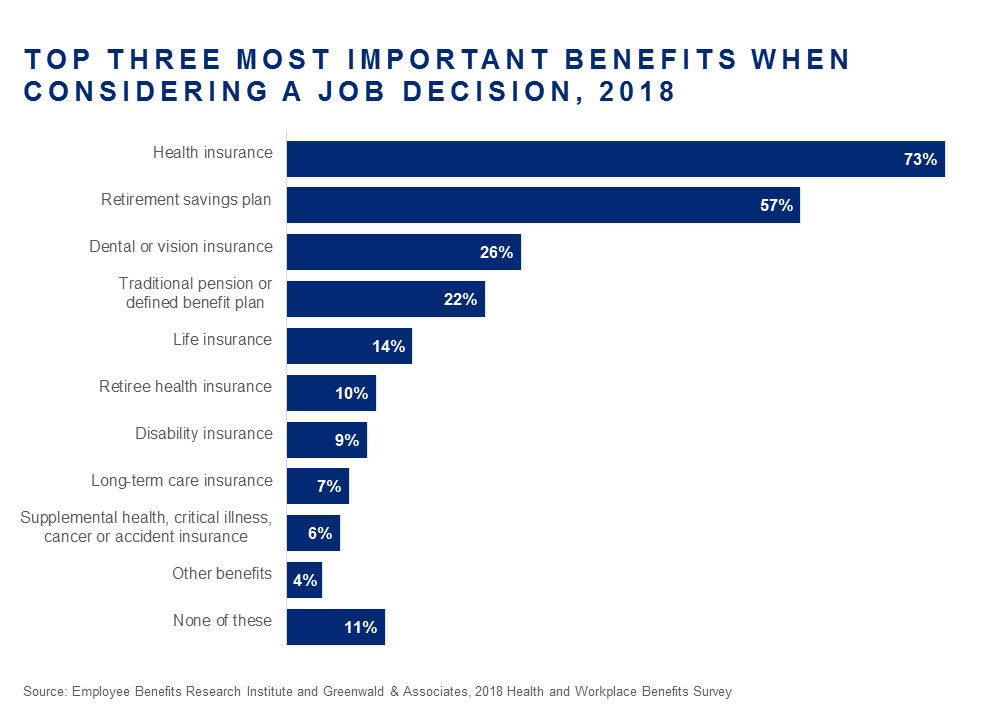You Know Health Benefits Matter. But Did You Know How Much?
 ©biker3 - stock.adobe.com
©biker3 - stock.adobe.com
If you need to make the case that your health benefit program deserves some extra attention these days, you might want to review recent findings from the EBRI/Greenwald & Associates Health and Workplace Benefits Survey. Mercer is a sponsor of this excellent national survey of employees, a valuable complement to our own survey of employer health plan sponsors.
We especially appreciate the question that asks employees what benefits are most important in their decision to stay in a job or pick a new one. Health benefits are consistently at the top of the list, and this year was no different: 73% of workers report that health insurance is one of the top three most important benefits influencing their employment decisions. That's significantly higher than the 57% reporting that a retirement savings plan is in the top three.

Another sign that employees are hyper-focused on healthcare: when asked to name the most critical issues facing our nation, healthcare was picked by more workers -- 26% -- than any other issue. And one-half of workers describe the health care system as poor (22 percent) or fair (28 percent).
While workers tend to be more favorable about their own health plans than they are about the health care system overall -- half of those with health insurance coverage are very satisfied with their current health plan -- you could see that as a glass half full or half empty. Cost is a big issue: Just 22 percent are satisfied with the cost of their health insurance plan, and only 21 percent are satisfied with their out-of-pocket costs. This has implications for employee well-being, since money worries in general and the cost of health insurance in particular are a major source of stress for Americans.
As I wrote in a recent post on Mercer's survey findings, employers are increasingly focused on strategies to manage health benefit cost growth without shifting cost to employees. That's no small challenge, but as the EBRI study suggests, in a period of low unemployment and tough competition for talent, your health benefit program may be the X-factor that helps you get and keep the workers you need.
